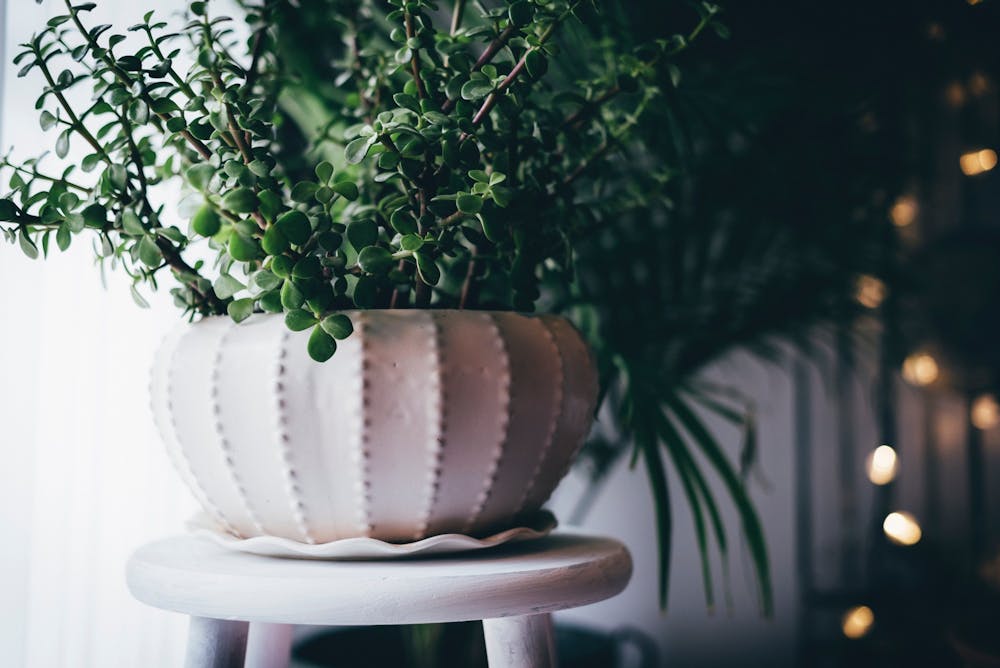What are the benefits of having indoor plants>
- Plants help clean indoor air by absorbing toxins, increasing humidity and producing oxygen.
- Plants can be therapeutic to care for.
- Plants boost your mood, productivity, concentration and creativity as they bring the outdoors into your home.
- Plants can reduce stress, fatigue, sore throats and colds, as they create a calming, relaxing environment, which can boost your immune system.
Source: The Sill
Looking out their windows this winter, students can only see bare tree branches, brown grass and frosted fall leaves. To bring warmth into their homes again, some students may want to buy indoor houseplants for their dorm, apartment or house. Consider the tips below to help you take care of your new plant babies to ensure they stay green and cheery all semester long.
Choose an indoor plant that fits your college lifestyle
Not all plants require the same amount of maintenance to keep their leaves and flowers healthy. Consider how much maintenance you’re able to do to upkeep your plants. If your schedule is packed this semester, it may not be best to purchase a plant that needs frequent watering because you may forget to do so.
For college students, desert-native plants like succulents and cacti may be a good option because they like to stay dry and benefit from less watering, according to The Sill, a plant care information website.
Consider how much sunlight enters your home
Different types of plants require different types of sunlight as well, so it’s important to be aware of how much sunlight fills your dorm, apartment or home before purchasing an indoor houseplant.
According to an article by Costa Farms, one of the largest horticultural growers in the world, if you don’t get a lot of sunlight streaming through your window, purchase plants such as lucky bamboo, a ZZ plant, a snake plant or a pothos plant that thrive in lowlight. If your home does get a lot of sunlight, fill your windowsill with plants such as a ponytail palm, money tree, aloe vera, peace lily or ferns that need bright light to survive.
Research how much water your plant needs
A common mistake of raising plants is overwatering them. Only water your plants when the soil is dry — not just on the surface, but 2 inches deep — so your plants receive a good balance of water and oxygen, according to The Sill. Plants also absorb water through their roots, not their leaves. So, if your plant’s soil is left wet for too long, your plant’s roots can rot.
Soil will dry out faster in small pots than larger pots. The season and amount of sunlight your plant receives also affect how quickly the soil will dry out. Give your plants enough water so their soil is moist, and only rewater when the soil becomes dry again, which can be a week or month later.





